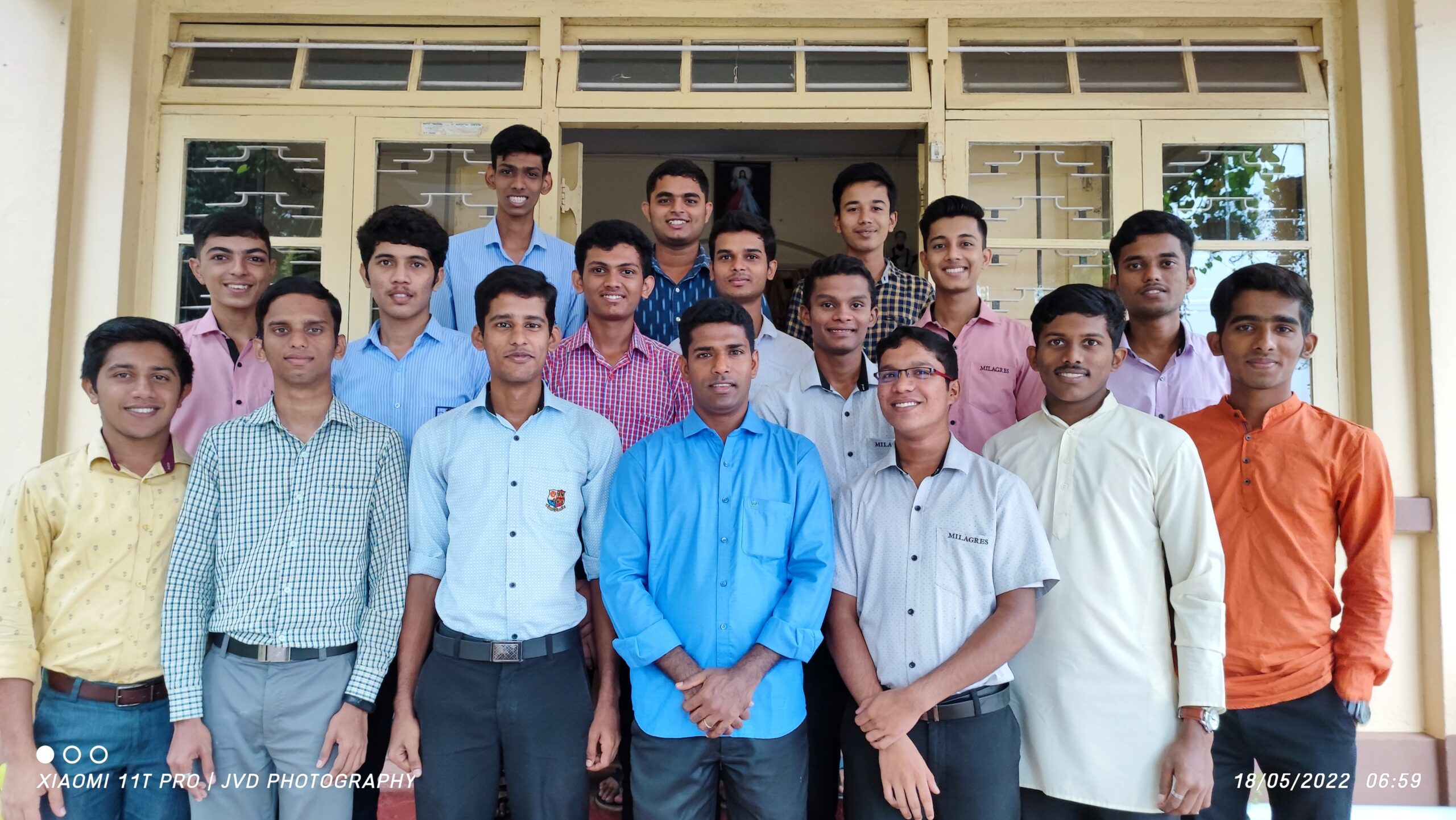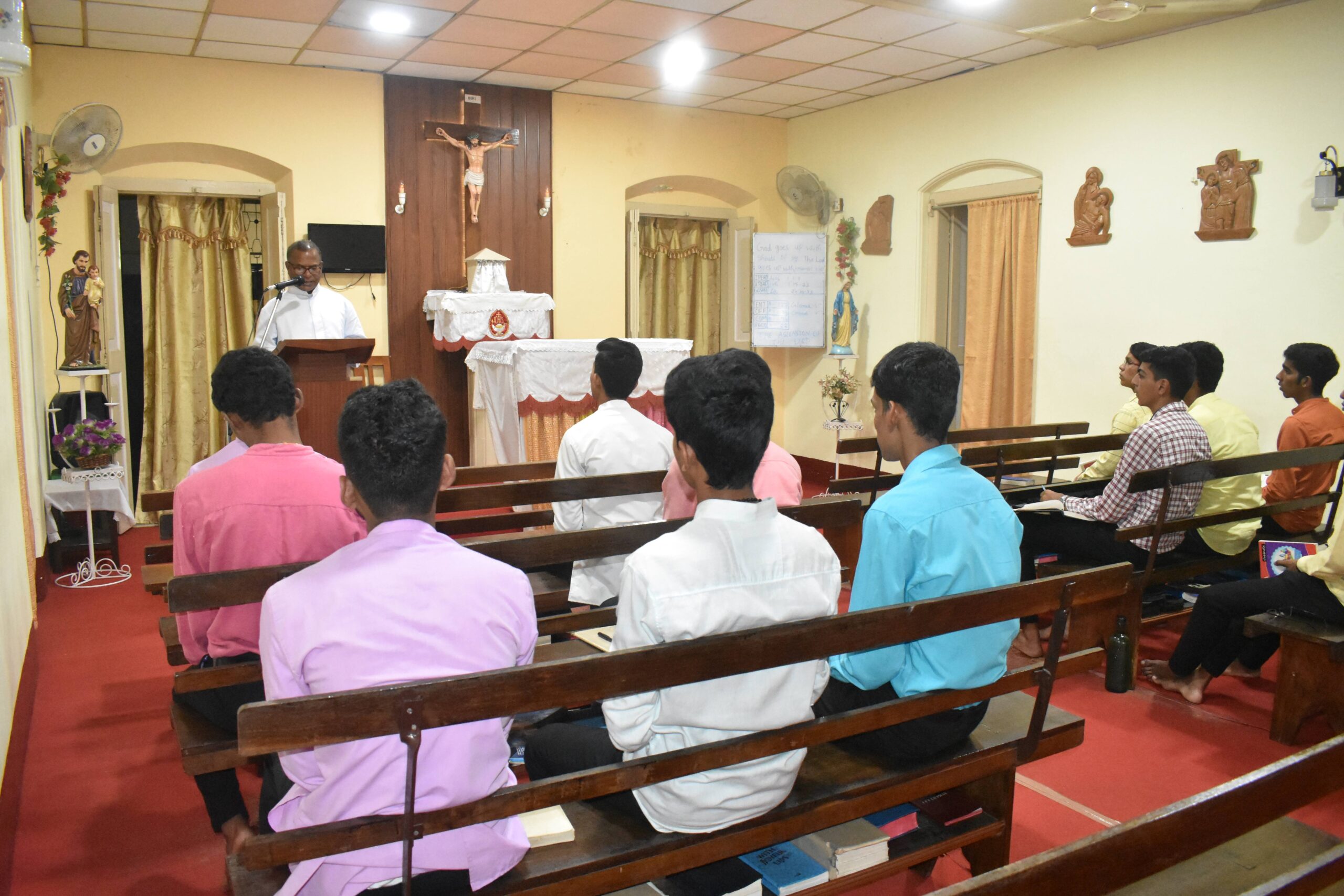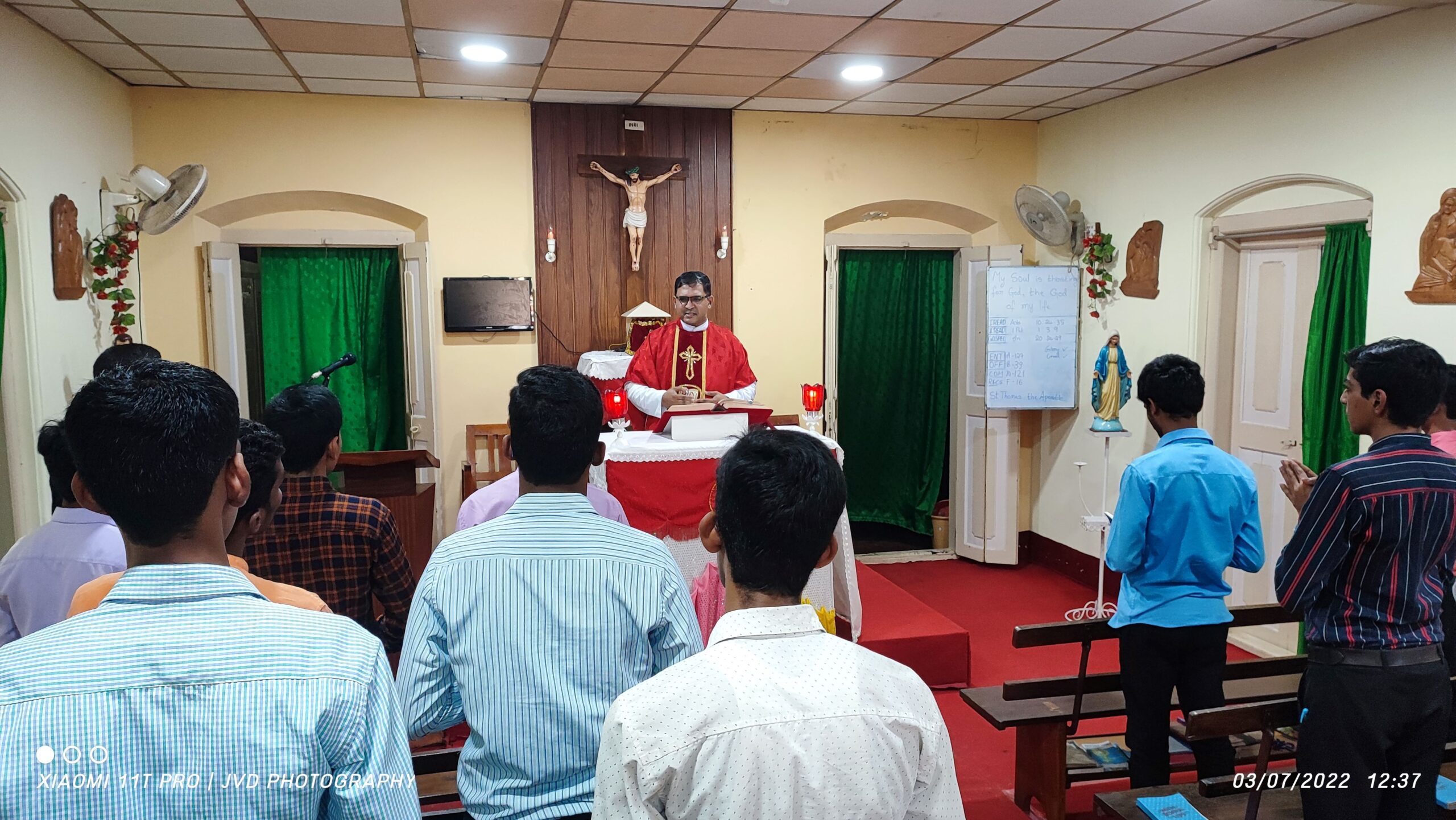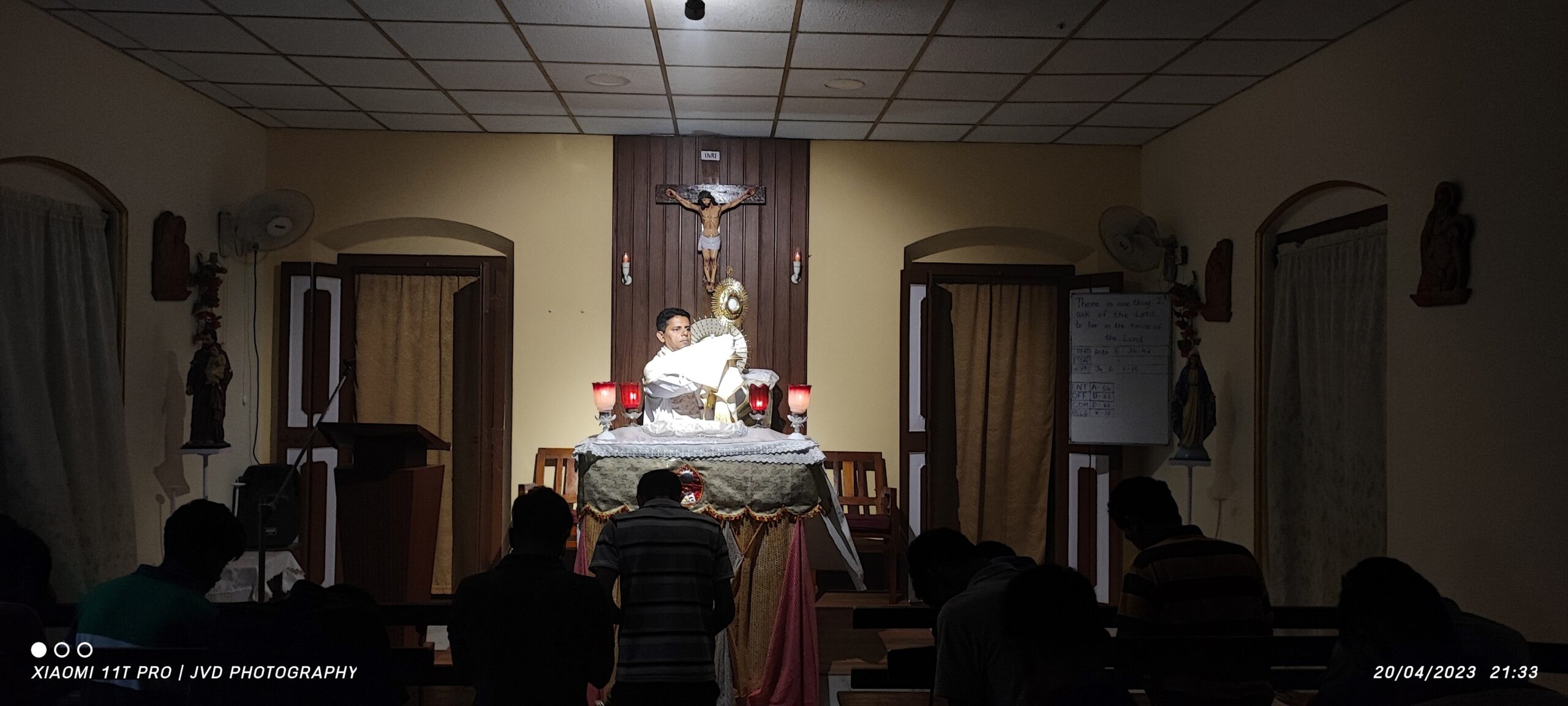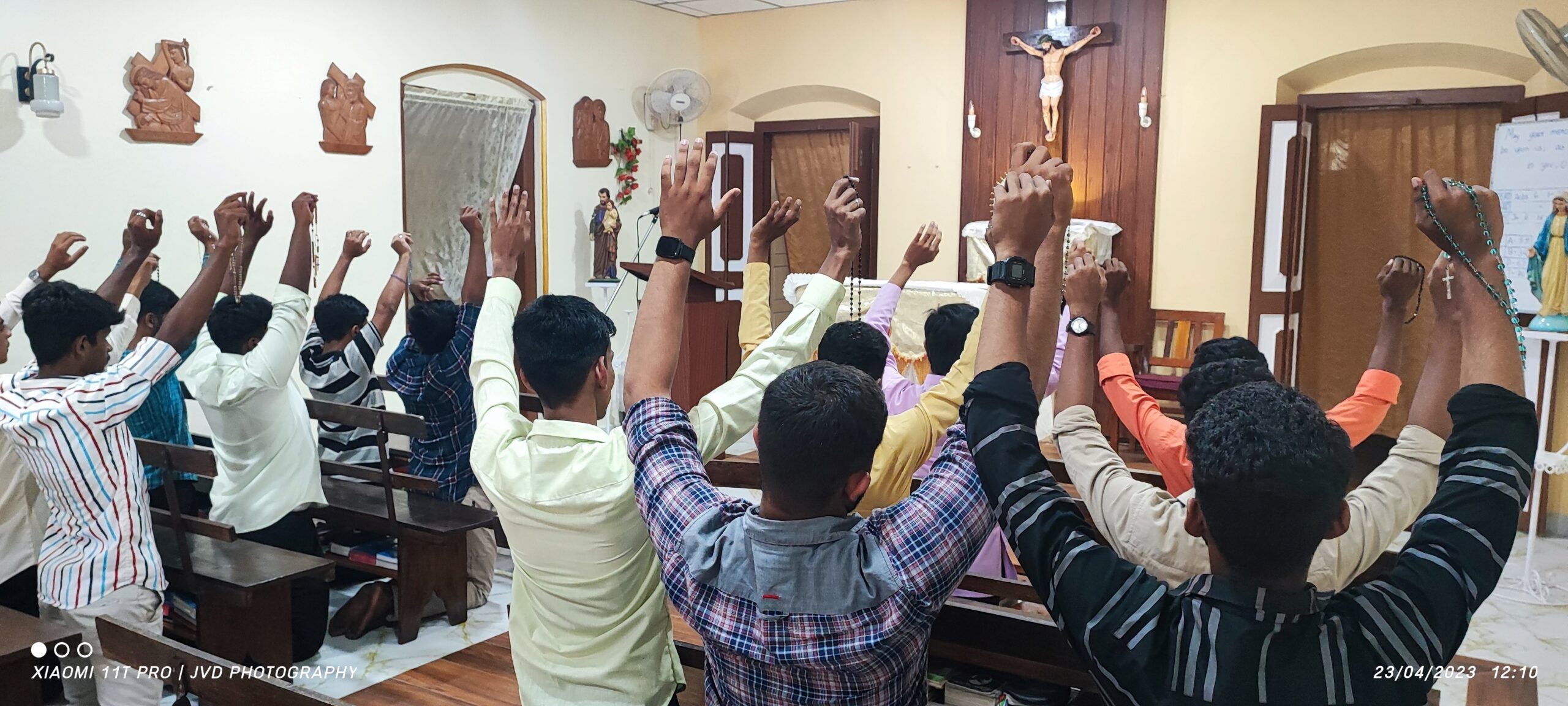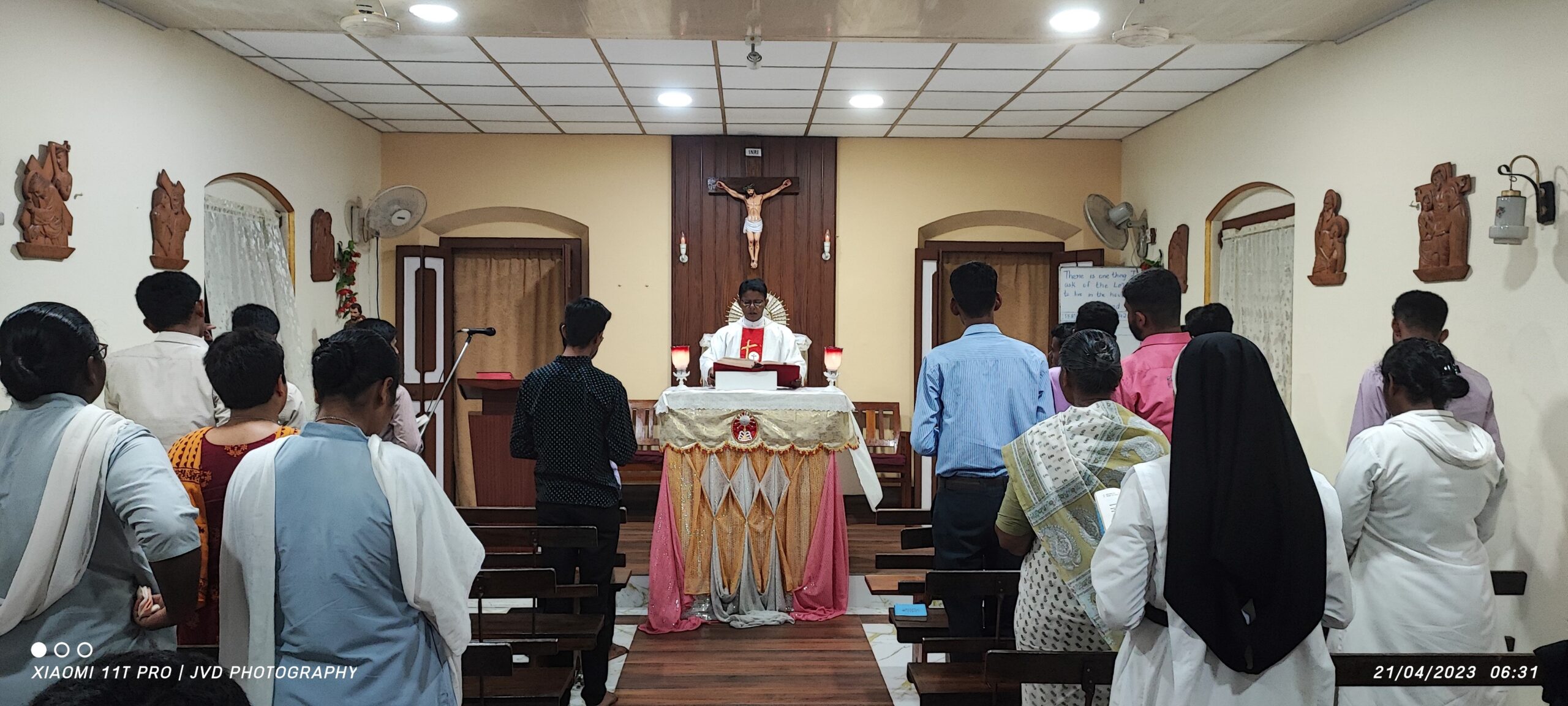SPIRITUAL FORMATION

INTRODUCTION
Human person is a body-soul composite. Hence spiritual life cannot be considered as an abstract reality or an issue of mere good intentions. Life on earth is very concrete; so also spiritual life. We are presenting here a growth-oriented spirituality’. Growth can be said to result in a meaningful combination of thinking-feeling-action.
Openness to the Spirit
Spiritual formation can be described as the ‘process by which the life of the human person comes to full maturity under the influence of the Spirit’ (Hundredfold Harvest Asian Level Seminar, sponsored by the Congregation for Evangelization of Peoples, 1991, p. 73). Often openness would call for submission to the will of God manifested by the Spirit.
Man of God
“This is what people ask of the priest: The priest is a man of God, one who belongs to God and makes people think of God” (PDV, No. 47). Living in a world that is being steadily secularized, acquiring a taste for God or experience of God would demand a great ‘sadhana’.

Vital union with Christ
“Vocation to the ministerial priesthood begins with an encounter with Christ” (Pastoral Guide from Congregation for the Evangelization of Peoples, 1989, No. 19). The experience of a personal encounter should result in a healthy excitement, seeking for further encounter. In the Gospel of John, Andrew said, “We have found the Messiah. Then he took Simon to Jesus” (Jn 1:41). Then followed a period of living intimately with Jesus, developing a sense of friendship with their master. The group of Apostles had a continual rhythm of seeking and finding the master.For seminarians, a similar experience should happen, within the frame-work of the seminary. facilitated by their personal prayer, in their religious companionship and in the prayerful study of the life of Jesus in the New Testament. Thus they are called upon to live a life of discipleship with Jesus, preparing themselves to preach Jesus, not only from books, but equally basing themselves on their life with Christ.
To be Ecclesial
The Church is our mother. Seminarians need to have an attachment to the Church, even at times becoming aware of her shadow side. They would do well to give great importance to reading the official documents of the Church in their life of study. The gift of the Eucharist is well placed in being ecclesial. “The high point in Christian prayer is the Eucharist, which in its turn is to be seen as the summit and source of the Sacraments and Liturgy of the Hours” (PDV, No. 48). The Eucharist is to be seen as “Sacrament of piety, sign of unity, bond of charity” (PDV, No. 48). While living the spirituality of the Eucharist, we must focus on four specific fruits: “Gratitude for heavenly benefits received… an attitude of self-offering… charity nourished by the sacrament… the yearning to contemplate and bow in adoration” (PDV, No. 48). In Christian piety, the Eucharist and the Sacrament of Penance have always been related. “It is necessary and very urgent to rediscover within the spiritual formation, the beauty and the joy of the Sacrament of Penance…” (PDV, No. 48). The Church was us against the danger of losing the ‘sense of sin’. Seminarians will make the habit of at least a monthly confession.
Biblical Spirituality
Seminarians should take Sacred Scripture as a source of constant enlightenment and inspiration. They will daily practice a prayerful and meditatedreading of the Word of God. In their life they would then be able to give witness to the transforming power of the Good News. They should learn to pattern their spiritual life and fix priorities, basing themselves on the Scriptures and particularly on the new law given in the New Testament.
Prayer Life
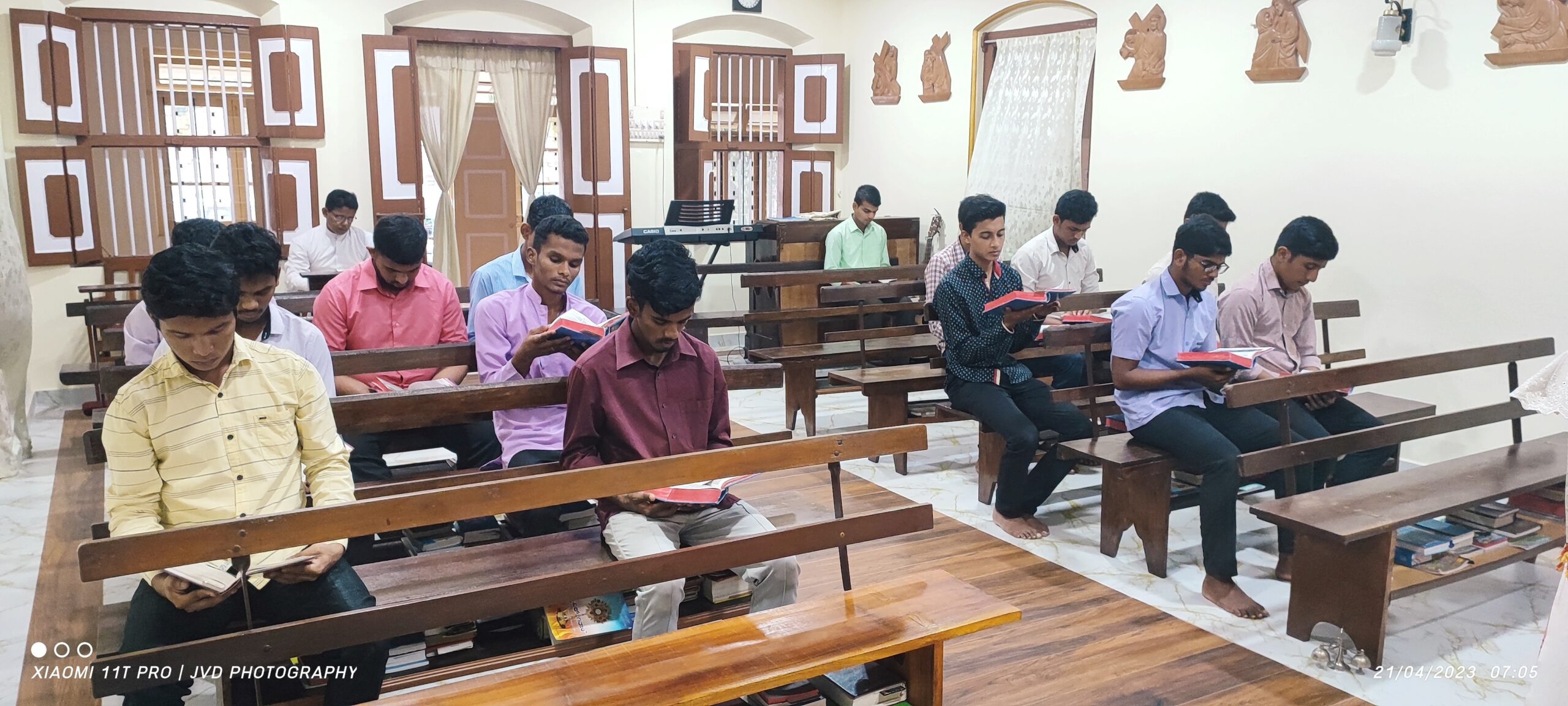
Seminarians’ prayer life must take the form of contemplative orientation. “Prayer should lead candidates to the priesthood to get to know and have the experience of the genuine meaning of Christian prayer as a living and personal meeting with the Father” (PDV, No. 47). They should be trained in meditation. They should personalize the different prayer exercises, demanded by the common rules (Code of Canon Law, 246#3). Prayer should give meaning to their life and be able to sustain their spirit, amidst life’s hardships and trials. Personal prayer plays an important role in the life of a priest, especially that of a diocesan priest. In order to prepare seminarians for such spirituality, the Seminary provides scope for personal prayer (Morning and Evening Prayer in private) on certain days. However, such occasions of prayer must be utilized to pray in a commonplace at the assigned time.
Growth-orientated Spirituality
Jesus said, “I have come that they may have life and have it abundantly” (Jn 10:10). Seminarians need to have a spiritual life that ensures growth. As priests they will have to exercise a spiritual leadership. Grace is built on nature. As a foundation, they should “enjoy true inner freedom and maturity of spirit, free from undue personal anxieties and ambitions as well as group pressures” (Charter of Priestly Formation, No. 3.2.2.c). This brings to our mind, the concept of quality of life, as a combined result of growth in different areas.
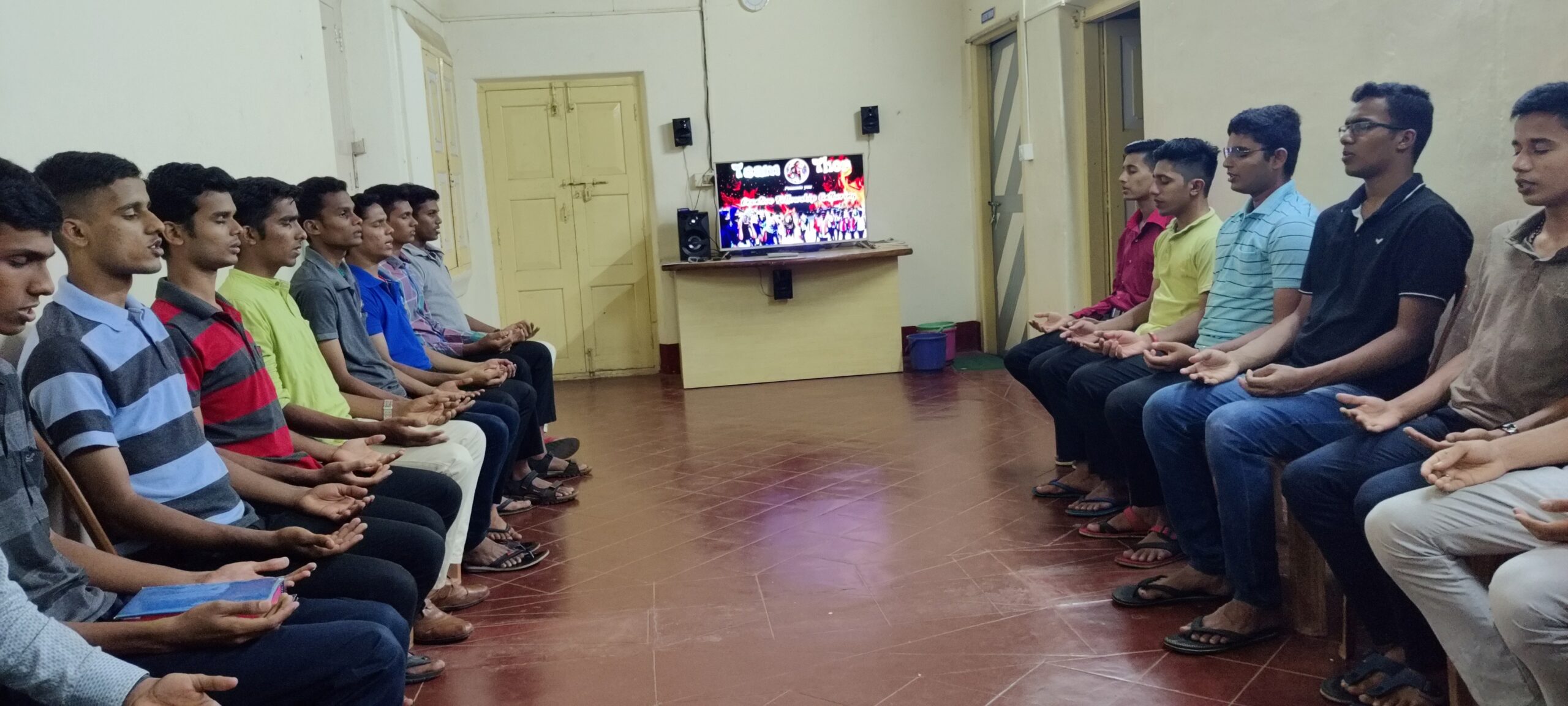
Personal Programme for Perfection
Besides the institutional programmes, each seminarian is expected
to draw up a personal programme in view of attaining holiness. This would
involve a lot of self-investment, particularly in the area of affective life.
He has to constantly negotiate with his likes and dislikes, his attractions and
emotions. A greater transparency and open sharing would help to a great extent.
The forum of ‘Fellowship Groups’ would be of great help here. The seminarians
should have a conscious desire to attain holiness and not be satisfied in
attaining only human refinement. Faithfully writing of personal journal or
diary would be of great help in this direction.
Mission Oriented Spirituality

Jesus called the Apostles to himself that he may send them. This issue offers us a New Testament perspective of the mission. Mission is different from social work. In the mission, we should keep the image of the Good Shepherd before us. Seminarians should make themselves men of charity, pastoral charity. with a preferential love for the poor. Pastoral charity is closely related to “education in obedience, celibacy and poverty” (PDV, No. 49).As a preparation for the future mission, seminarians will have opportunities to go for ‘ministry’, particularly on Sundays. Although a life of enclosure in the seminary would spontaneously welcome any chances to go out, seminarians should with great care, avoid this going out as an occasion to attend mainly to their human psychological needs. They should carry out this programme of ‘ministry’, with due seriousness and responsibility, and above all, use it to gain genuine formation in mission. A log book in which they write the reports and experiences, is to be maintained.
Celibacy
Training themselves for a life of celibacy would be one of the key issues in their formation. Celibacy is a multi-faceted reality. In view of celibacy, seminarians ‘should have a sufficient degree of psychological and sexual maturity, as well as assiduous and authentic life of prayer’ (PDV, No. 50). They should ‘know, appreciate and live celibacy according to its true nature’ (PDV, No. 50). It would be useful for them to be familiar with the Encyclical Sacerdotalis Caelibatus, 1974. Celibacy is a divine gift for the Kingdom of God.
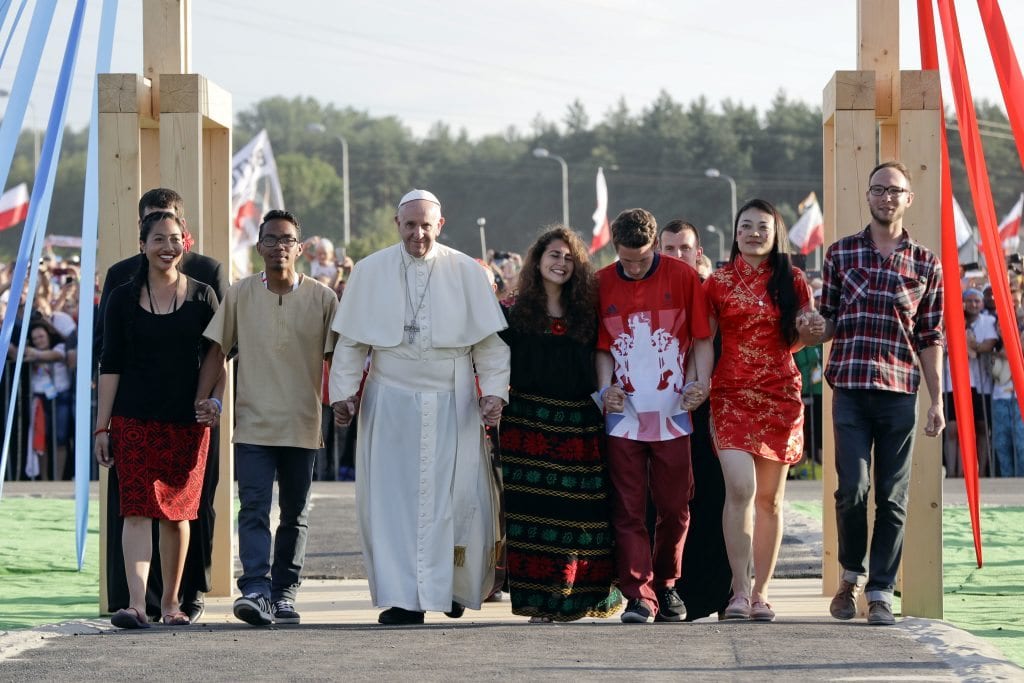

'I am an Indian'
As believers in the mystery of Incarnation, we need to grow in our consciousness that I am an Indian’, ‘I am an Asian’. It is of immense significance that we are living in Asia, the birthplace of Jesus and the birthplace of the Church. As Jesus did, we have to learn to meet God on Indian soil, in songs and stories and above all seek Jesus in people (PDV, No. 49). Then we would be better prepared to fulfil “the need for a dialogue of life and heart” (EIA, No. 31). Thus, we clearly manifest to the people of other religions, that Christianity is not foreign. Seminarians will
manifest a greater interest in learning Indian methods of prayer and integrate into life values from Indian traditions and cultures. As a personal response to the Indian situation of poverty, we need to give greater place to simplicity in style of life, detachment, renunciation, silence, etc. (EIA, No. 44). 13. Periodic Spiritual Exercises
Our Menu
a) Spiritual Direction:
In order that one may be more effectively guided in making progress in spiritual life, each one should have one’s own fixed Confessor and Spiritual Director. Ordinarily, it is advisable that the Spiritual Director himself is the confessor. However, for a good reason, one may make one’s confession to any other priest. At least once a month. they shall meet the Spiritual Director. Openness and frankness are highly desired here. Direction is to be viewed not to solve problems, but more to make progress in spiritual life. (For guidelines on spiritual direction, refer to the Book Let Us Pray, pp. 134-136).
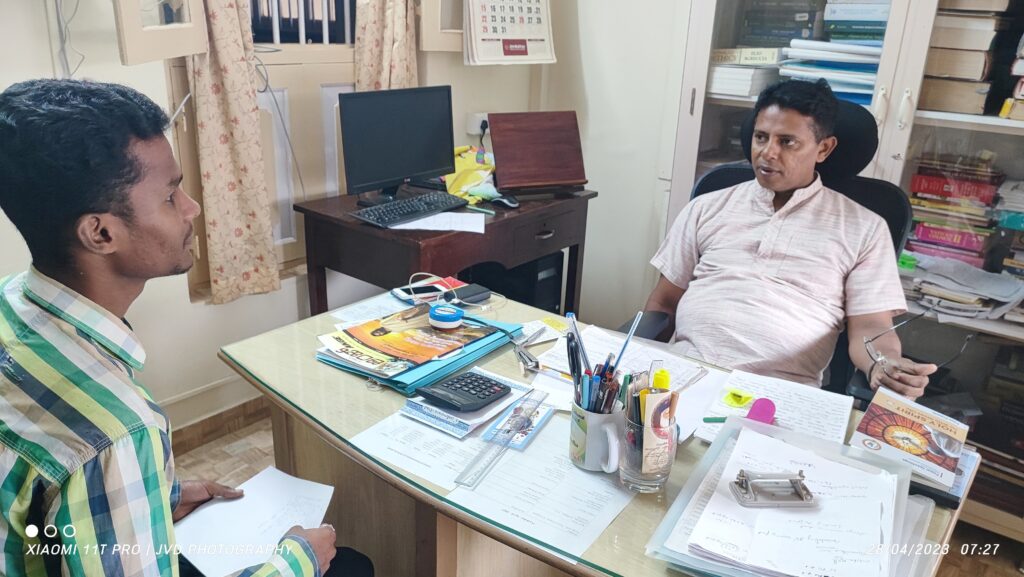
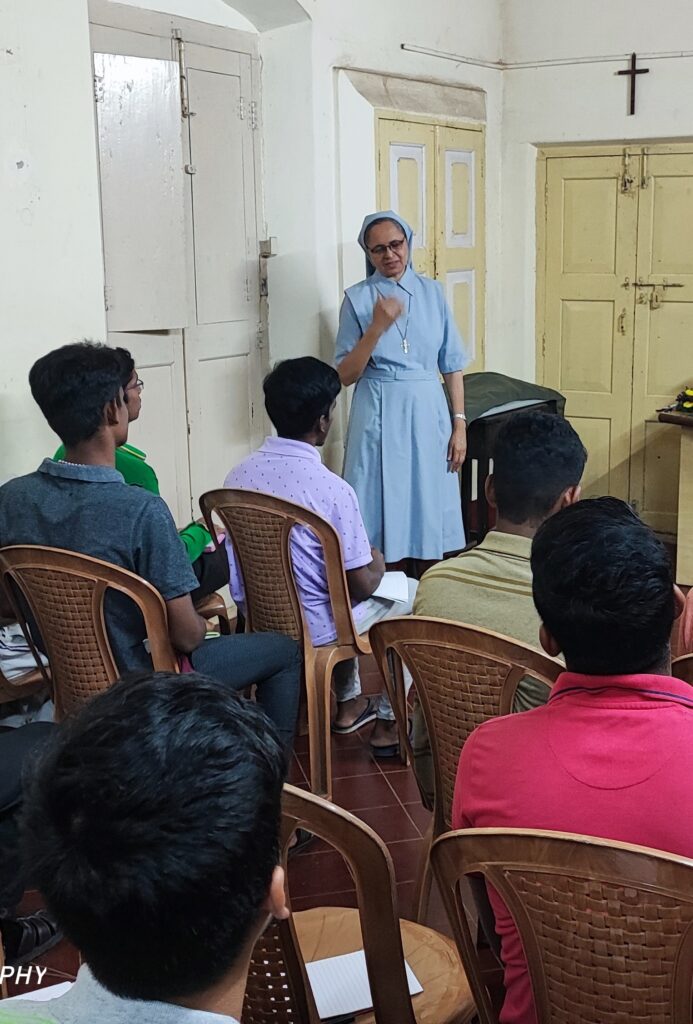
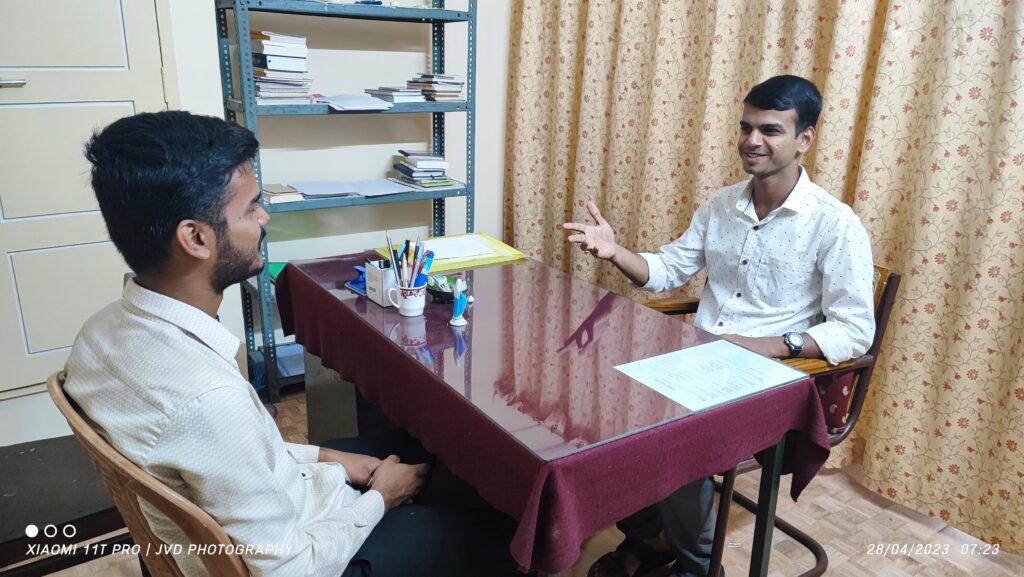
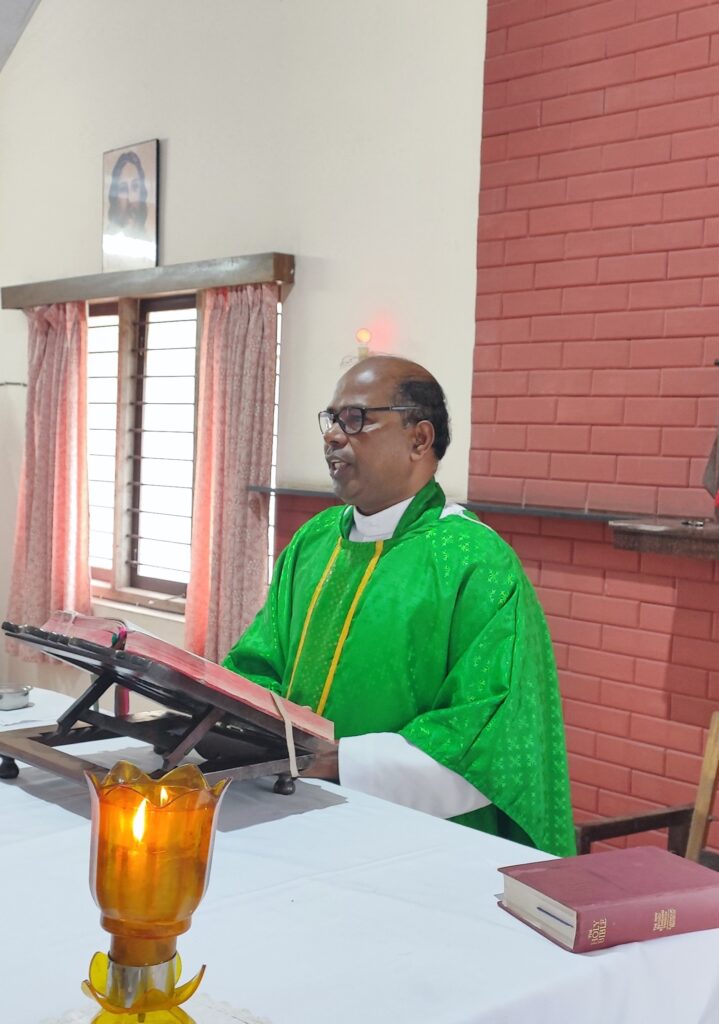
b) Retreat:
Each year they will make a retreat for six days. Each one should make efforts to know the truth about oneself, by acquiring a greater knowledge of God. As the Indian tradition would put it: The self is known in the SELF.
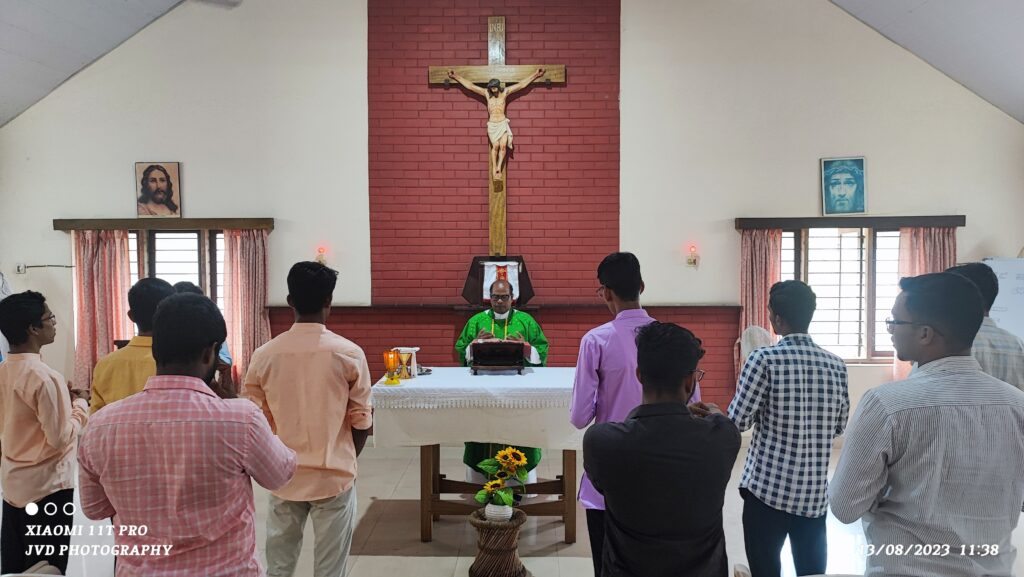
c) Recollection:
They will make a monthly recollection, on the day appointed. Normally it will be half day, at times full day. Recollection must be viewed as a moment of grace, demanding a high level of investment from our side. There will be a Spiritual Conference on the third Tuesday of the month. d) Benediction: Every Friday in the place of night prayer there will be benediction, an exercise to help us recognize the constant presence of Jesus among us. On the first Friday of the month, an hour of adoration is conducted. The third Thursday of the month is dedicated to half-day adoration.
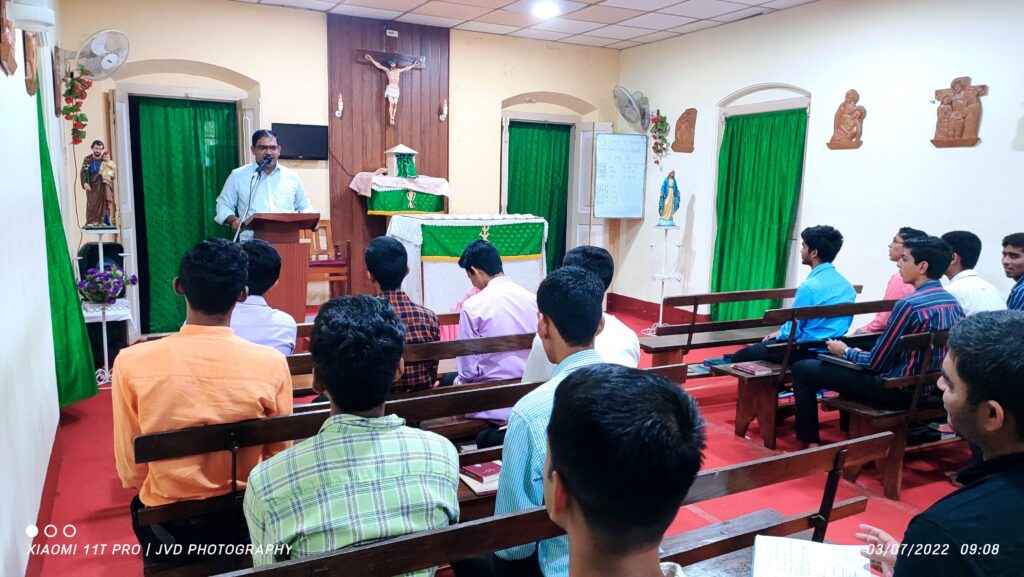
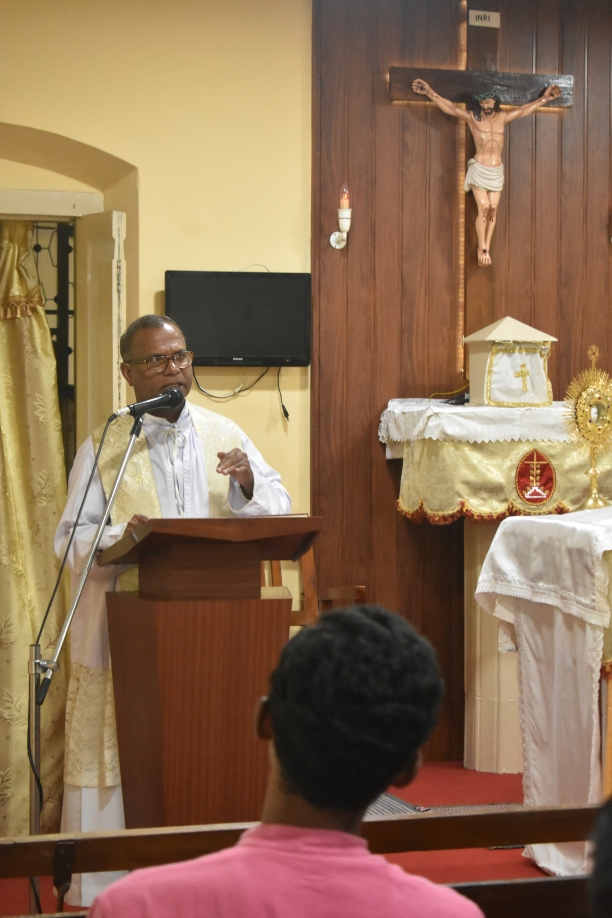
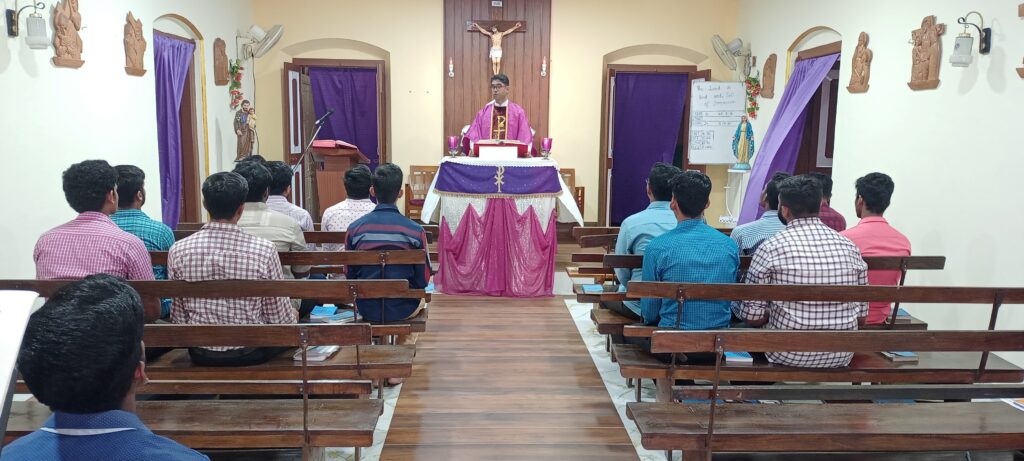
A list of concrete Spiritual Exercises, to be followed daily as obligatory
1. Morning, Noon and Night prayers with an examination of conscience
3. Participating in the Eucharistic celebration
5. Spiritual reading for fifteen minutes
7. Angelus thrice a day
9. Reading of Scripture for fifteen minutes.
2. Meditation for half an hour
4. Visits to the Blessed Sacrament
6. Preparation for meditation points on the previous evening
8. The Rosary

First Year Philosophy
During the first year in the Major Seminary, there is a greater emphasis on the area of spiritual life They will have 'Spiritual Life' as a major subject They will have more personal guidance in prayer. life and in other areas. On their part, seminarians have to make a serious effort to gain clarity about their vocation, personal prayer, and human qualities and gain an overall spiritual orientation, as a firm foundation for a long formation yet to come.

We highly recommend that seminarians read the following:
1. Pastores Dabo Vobis, 1992, Nos 45-50.
2. Decree on Priestly Formation Optatam Totius, Vatican II, Nos 8-12.
3. Decree of Ministry and Life of Priests Presbyterorum Ordinis, Vatican II, Nos 15-17.
4. Charter of Priestly Formation for India, 2004, Nos3.2.2.a-3.2.2.k.
5. Apostolic Exhortation Ecclesia in Asia, 1999, Nos 43-44.


